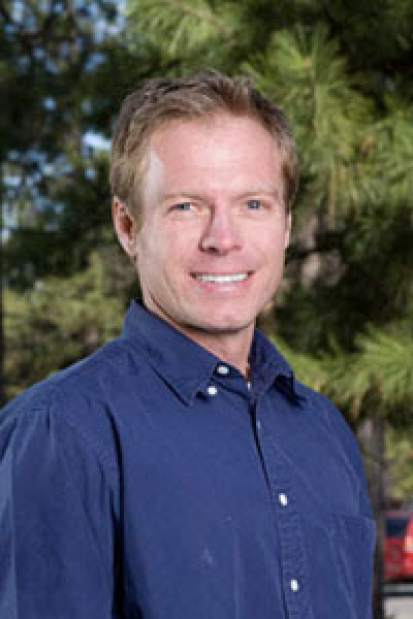Can horses help trauma survivors?
An Oregon State University-Cascades Campus professor has received a grant to study how horses can be used to treat trauma survivors.
Assistant Professor of Counseling Daniel Stroud received a $50,000 grant from the Human-Animal Bond Research Initiative for a 14-month study titled “Equine-Facilitated Group Psychotherapy for Trauma Survivors: Horses and Humans in Therapeutic Relationships.” The grant comes on the heels of a small-scale study by Stroud that found trauma survivors who received treatment based around interactions with horses had an improved self-image and decreased feelings of detachment.
Also, participants stayed in therapy at a higher rate than counselors typically see in more traditional settings, with many of the participants citing the relationship they formed with a horse as the reason they stayed.
“Those results were really fantastic,” Stroud said. “In traditional treatment, what happens within four walls, individuals work to retell traumatic events and reprocess the event. This approach with the horses is focused on the here and now.”
The new study will involve 42 female trauma survivors in Central Oregon and the Corvallis area. Because the study participants may include victims of sexual assault, domestic violence or military sexual trauma, the groups have been limited to females. Seven eight-week psychotherapy groups will be held at Healing Reins, a therapeutic riding center in Bend, and the OSU Horse Center in Corvallis. Stroud and his collaborators will attempt to understand how equine-facilitated group psychotherapy, or EFGP, can treat symptoms of post-traumatic stress. In the long run, Stroud said he hopes to open a center for EFGP in Central Oregon.
“The EFGP world is still a baby, it’s in its infancy,” Stroud said. “Over the years, horse people have said, “Yeah, horses can be great; there’s something special between horses and humans.’ Applied to the mental health world, it hasn’t yet been evidenced; everything’s been anecdotal. That’s what this is about.”
Stroud said his sessions involve a mix of traditional therapeutic activities in the presence of horses, as well as activities focused on horses, such as grooming a horse or leading it through an obstacle course without a halter. Simple observations of the horse also play a big part, as Stroud said participants often project their own feelings, whether of nervousness or disinterest, onto the horse. Stroud characterized this phenomena as a “therapeutic mirror.”
“Working with a horse partner helps with awareness of self in relationship to others,” said Katy Schroeder, an OSU counseling doctoral student who will be assisting with the project. “They’re very social animals and they’re sensitive to things. They are willing to consent to being groomed, and it’s a bonding activity where you get feedback from the horse.”
Schroeder said leading the horse through an obstacle course, which can be quite difficult, is an exercise in emotional regulation.
“You get to use coping strategies and develop skills to manage anxiety and taking risks,” she said.
Stroud said the treatment isn’t just intended to help people who are already fond of horses.
“I think it may actually be most beneficial for folks with zero horse experience,” he said. “I’ve seen a range, and I think all can benefit, but the experiences will be different based on what the individual brings.”
